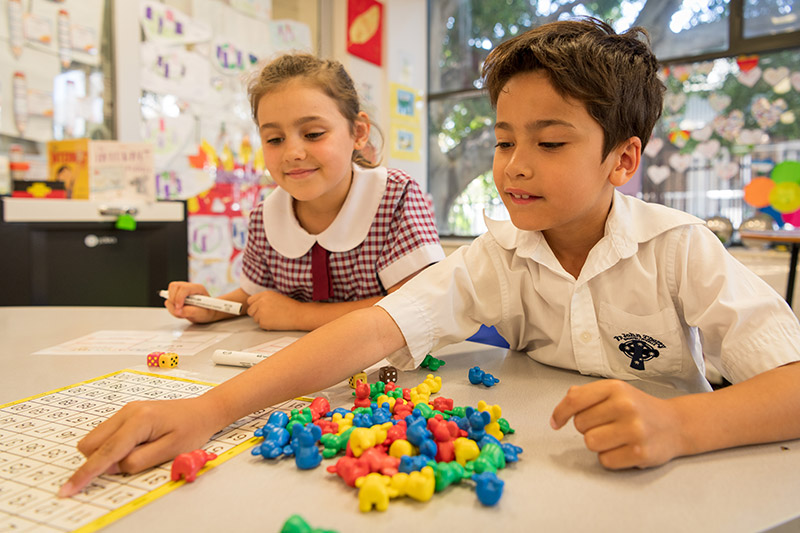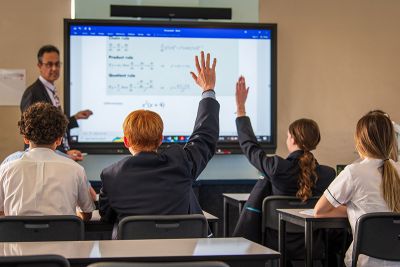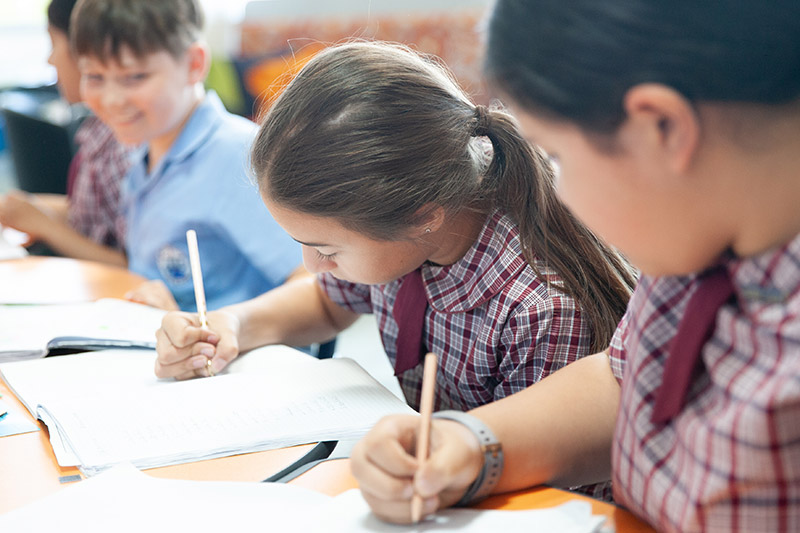 Sydney Catholic Schools’ Excellence in Action Framework ensures that every student we teach has access to the best our system has to offer.
Sydney Catholic Schools’ Excellence in Action Framework ensures that every student we teach has access to the best our system has to offer.
Our teaching practices are holistic, consistent, and evidence-based. They embrace collaboration, shared expertise, and resources and balance our high expectations for every student with high support to help learners thrive.
Strong foundations in literacy and numeracy set the stage for learning across the curriculum and continued success.
CURRICULUM
Sydney Catholic Schools follow the curriculum provided by the NSW Education Standards Authority (NESA), with an added Religious Education curriculum.
The NSW curriculum is written in three phases: Kindergarten – Year 6, Years 7 – 10, and Years 11 – 12. It includes the following key learning areas:
- English
- Mathematics
- Science
- Human Society and its Environment (HSIE)
- Personal Development, Health and Physical Education (PDHPE)
- Technology
- Creative Arts
- Languages
- Vocational Education and Training (VET)
Religious Education is scholastic discipline with the same rigour as other subjects. The curriculum develops deep knowledge and understanding of the Catholic faith and Gospel, and nurtures students’ skill and capacity to discern, think critically, seek truth and make meaning.
POST-SCHOOL PATHWAYS
There are a variety of post-school pathways available to our students. Most students in Years 11 and 12 work to complete the Higher School Certificate (HSC), the highest level of attainment that school students can achieve in NSW. Many SCS students receive an ATAR (Australian Tertiary Admission Rank) and pursue a university degree.
NESA issues a Record of School Achievement (RoSA) to eligible students who leave school before completing the HSC.
Sydney Catholic Schools is a Registered Training Organisation. We offer school-based apprenticeships and traineeships (SBATs) and nationally recognised qualifications from Certificate I to Certificate III.
These help students explore areas of industry and hone relevant skills to kick-start their career.
Each qualification contributes to the ROSA and HSC, providing students who choose this pathway with dual accreditation.
Other opportunities for accelerated post-school learning include a partnership with Australian Catholic University. This allows students to complete their first subjects in a teaching degree while enrolled in Years 11 and 12.
 ASSESSMENT
ASSESSMENT
Our schools use a variety of assessment tools to determine what students know,
understand, and can do at a given point in time.
Assessment is essential to:
- provide relevant and timely feedback to students, focused on their effort and the learning process.
- promote dialogue between teachers and learners, and determine the next steps in their learning journey.
- guide students to become confident learners who achieve progress.
